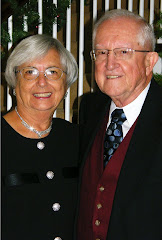 Have you ever watched the Youtube video called, "Jessica's Affirmation?" My students watched it today and then made their lists of everything they like. What a powerful experience. Some of the students even shared their list with their classmates. I was given permission to share the following 6th graders' lists with you. I think you can easily understand why I love to get up every morning and teach these beautiful children of God!
Have you ever watched the Youtube video called, "Jessica's Affirmation?" My students watched it today and then made their lists of everything they like. What a powerful experience. Some of the students even shared their list with their classmates. I was given permission to share the following 6th graders' lists with you. I think you can easily understand why I love to get up every morning and teach these beautiful children of God!
Katie S.
- I like Holy Name
- I like balloons
- I like birthday parties
- I like birthday cakes
- I like presents
- I like school
Josie B.
I like my...
- Family
- School
- Friends
- House
- Teachers
- Myself
- God
- The World
Chris T.
I like my...
- Mom
- Dad
- School
- God
- Friends
- Football Team
- Hair
- Cousins
- Grandmas and Grandpas
- Brothers
- Sister
- Teachers
- Coaches
- House
- Grandma's House
- Church
- Myself
- Bedroom
- Posters
- Dog
- House in Kentucky
- Clothes
- Watching the Reds, Colts and Pacer Games...especially when I actually get to go to the games with my grandmas, grandpas, dad and mom.
Madilyn B.
I like my...
- House
- Dogs
- Brother
- Mom
- Dad
- Pool
- Backyard
- Rabbit
- Bedroom...that I don't have to share with anyone
- Dreams
- Friends
- Grandmas
- Grandpas
- I like how I get to go to Colts, Pacers and Bear Games
- Cousins
- Aunts
- I like how I am the youngest in the family...so I'm spoiled!
- Teachers
- Cell phone
- Laptop
- iPod
- iPod Touch
- Locker
- Myself
- Upstairs
- Outdoor Kitchen
- Shoes
- Mom's car
- Basement
- Piano
- Seasons
- Kitchen
- Spa Days
- How I live ten seconds away from Ashley...she takes me places...she is like my sister.
- I like how my family has money to buy me anything
Dylan L.
I like my...
- Family
- Dog
- Pool
- Friends
- Water
- House
- Dad's House (Where I live.)
- Other Family
- Stuff at both Homes
- Awesome Hair
- Teachers
- Myself
- Summer
- Winter
- Laptop
- Cell Phone
I Like My...
- Home
- Family
- School
- Friends
- Dog
- Cousins
- Religion Teacher:)
- Sister and Brother
- Bedroom
- Shoes
- Rosary
- Church
- Clothes
- iPod Touch
- Middle School Teachers
- Me
- Seasons
- Cheerleading and Volleyball
- Locker
- Family is wealthy
- God
- Laptop
- Hair
- Being Catholic
Nicole F.
I Like My...
- Brown Hair
- Family, Mom, Dad, Morgan, Jake and Me!
- Clothes
- House
- Friends
- Dog
- Cats
- World
- School
- All Catholics
- All animals
- Nature
- I like that my Dad is not suffering anymore and that he is peaceful...in heaven.
- Teachers
- Sr. Nicolette
- Fr. Stan
- All of the Nuns
- God
- Seasons
What's on your list? Share with us on the comment section if you want! We would love to hear from you.









